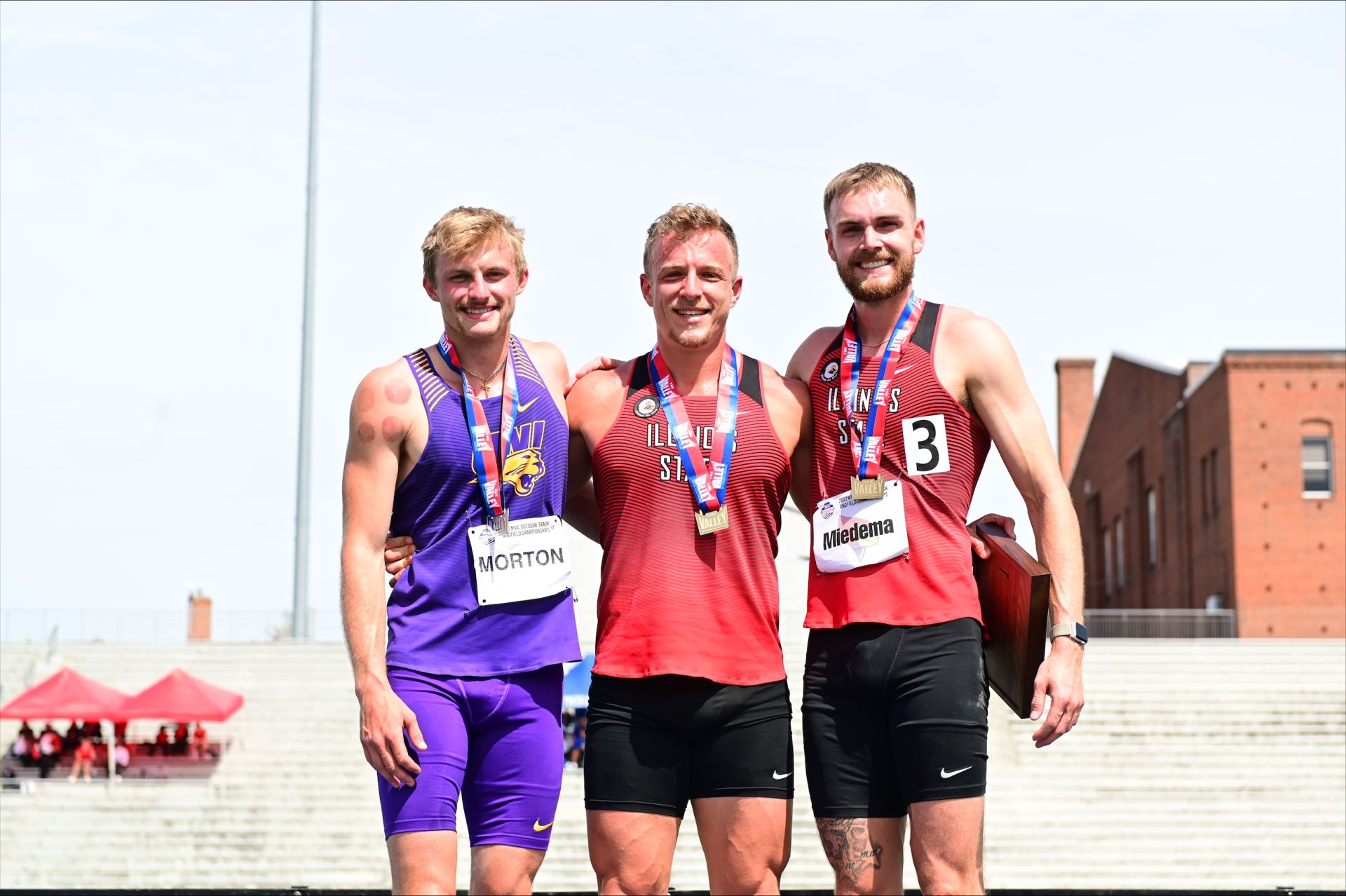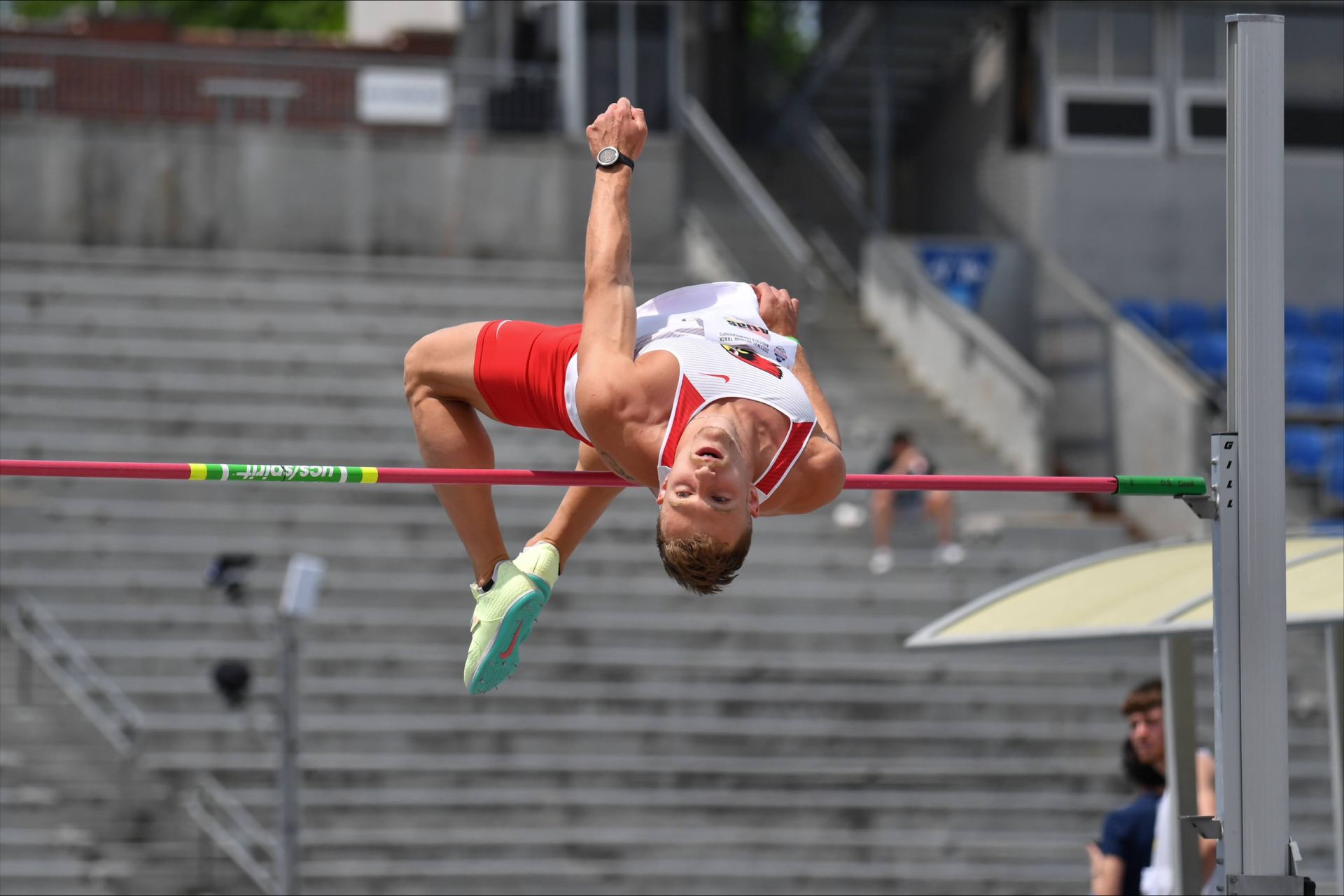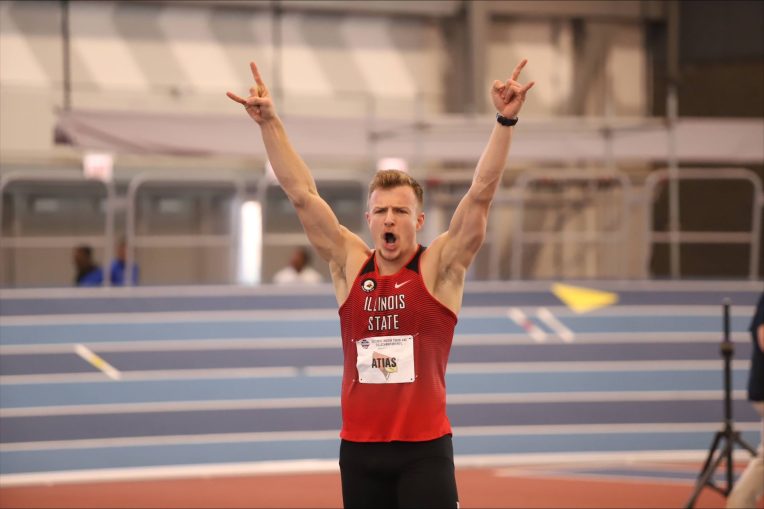The life of a college student is characterized by endless study hours at the library, class attendance, late-night assignments, group meetings, and after-class projects. If you were to add extra-curricular activities to the list, then you would have the perfect recipe for disaster, right? No, not at all. You would create an opportunity for students to break away from the monotony of coursework and maximize their potential. In other words, they would get to do “more” and become “more.” For that to happen, they must be willing to do what it takes.
What does it take to be a successful student-athlete at ISU? Well, if you were to ask exercise science major and Illinois State University record holder in the indoor heptathlon and outdoor decathlon Ariel Atias, he would say that it takes a blend of grit, balance, and fun.
The track and field athlete who is originally from Israel represents ISU in all decathlon events: 100m, 400m, 1500m, and 110m hurdles, high jump, pole vault, long jump, shot put, discus throw, and javelin throw.
He is also the Israeli record holder in the decathlon and Israeli championship, the Missouri Valley Conference 2022 indoor champ in the heptathlon, outdoor champ in the decathlon and javelin, as well as an NCAA regionals qualifier in the javelin. In addition, he is ranked 34th in the nation in the decathlon.
GRIT
Atias notes that his impressive track record is an accomplishment that has taken a lot of intentionality from him.
“I do not believe that I am more talented or more deserving than anyone. I am just hard-working. I remember being a very active child and I have loved being active ever since. I participated in swimming, judo, and track since I was 11 years old. It was very difficult. I would have to leave home at 7 a.m. and would not be back home till 7 p.m. because I had practice after school,” Atias said.
Fortunately, the hard work has paid off and has sustained the budding athlete even into his adulthood.
A “typical day in the life” for the student-athlete entails getting up between 6 and 7 a.m. and having two training sessions—one in the morning and another in the afternoon whilst having classes, group assignments, and meetings in between.
“I’m training basically, every day except Sunday. Most weekdays, I’ll have training between 7:30 a.m. and 9 a.m. and 2:30 p.m. to 4:30 p.m. On my busiest day, I’ll do assignments from 10 a.m. to 12 p.m. and then attend a class from 12 p.m. to 2 p.m. Right after my evening training session, I have weightlifting from 4:30 p.m. to 5:30 p.m. And the day then ends with a recovery session during which I’ll kickstart assignments occasionally,” said Atias.
For Atias, it’s all about pre-preparation for any event he competes in.
The first day of the decathlon entails running the 100m, long jump, shot put, high jump, and 400m. It all culminates on the second day where he participates in the 110m hurdles, discus, pole vault, javelin, and 1500m.
“Because of the frequency of the events, I must maximize preparation during the off-season,” Atias said.
Of the 10 categories, javelin’s throw is his favorite because he can tell the outcome of the throw before it lands. Once the javelin has left his grip, he is able to tell whether it’s a great throw and that allows him to celebrate before anyone else can.

BALANCE
Though Atias loves training for all 10 events in the decathlon, he emphasizes the importance of balance.
“Life is all about balance. Track is my job. School is also my job. I need to be excellent in both,” he said.
Schoolwork and athletics take up a chunk of his time, but he understands that it takes both to succeed. While one would assume that these two rob him of social life, Atias is adamant that it’s not a matter of sacrifice but a matter of prioritization.
“If I prioritize school and practice during high-intensity training seasons then I can prioritize my social life during low-intensity seasons,” he said.
Atias, who attended the University of South Alabama for his freshman year before transferring to Illinois State on a scholarship, confesses that schoolwork was not always his priority.
“Admittedly, I came to college in the U.S. for track and then fell in love with my major,” he said.
His interest in exercise science has increased as the major has enlightened him on various factors that affect him as an athlete. For instance, his knowledge of how different movements and fitness programs affect the body and its ability to exercise has been shaped. This knowledge has, in turn, enhanced his performance on the track.

FUN
“I try not to be too in my head during a competition. If you are too into it, then you’re getting stressed, but I love having fun. This is how I see it when I’m going to compete, it’s like I’m going to a party,” said Atias.
It is this mentality that helps him focus without putting tension on himself during a competition. He notes that the biggest contributor to a win on the field is the practice that has been done consistently for weeks beforehand.
“We train less in the days leading up to the competition. If you train too hard you can’t perform,” said Atias.
In fact, the IDEA Health and Fitness Association recommends tapering, the activity of decreasing workout hours and increasing intensity, as a crucial factor for ensuring athletes’ bodies are well-rested for the best performance on race day.
According to IDEA, “As workout duration decreases, it’s important to keep the intensity high to help athletes retain their ‘edge.'”
WHAT NEXT
The future is limitless for Atias who finds it hard to pinpoint where exactly he sees himself in the future.
The ISU track star draws inspiration from France record holder Kevin Myers, the science director for the Olympic Committee in Israel, Muli Epstein, as well as cherished friend Itamar Levi. He intends to follow in the footsteps of Epstein by pursuing a master’s degree in exercise physiology.
“There are just too many things that I’m interested in. I intend to go back to Israel and foster change in the field of sports education. I’m not sure about how to go about it as of now but the best way I can think of doing that is through education. I think that educating professionals such as trainers, coaches, and P.E instructors will revolutionize sports in Israel,” he said.
Atias graduates in December 2023 and is keen on pursuing a master’s and Ph.D. in Biomechanics thereafter.
Join the College of Applied Science and Technology where we meet our students who have what it takes to get to the next level.

